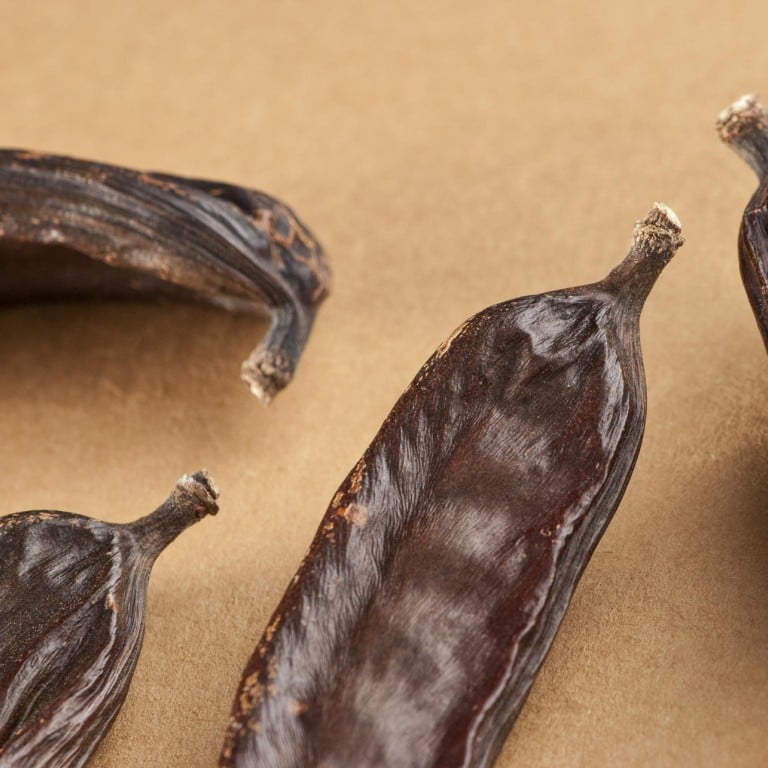
Carob enjoys a resurgence in popularity as a 'superfood'
The bean-like pod is enjoying an upsurge inpopularity as a so-called superfood, but not everyone is convinced, writes Nan-hie In
Carob, the flat, bean-like pods of the carob tree, has been consumed by people from the Mediterranean to the Middle East for centuries. Harvested elsewhere in recent decades, it has become an ever-present feature in health food stores from America to Australia.
In powder, syrup or bar form, the ingredient has re-emerged as a coveted nutritional item amid the global obsession with so-called superfoods - potent fruits or vegetables packed with exceptional nutritional content.
I use carob as you'd use paprika, salt and pepper. I love it.
But in Hong Kong, the food remains a mystery. Few grocers stock it; Marketplace and ParknShop have a range of other trendy superfoods like acai berry juices and coconut water, but not carob. But recent stirrings in the market suggest changes ahead. The Australian Carob Company - the biggest producer of the crop in the southern hemisphere - debuted its premium range at the Lohas Expo last month, a health and lifestyle expo held at the Convention and Exhibition Centre in Wan Chai.
The company's founder, Michael Jolley, says the response to his products - carob syrup, powder, and dried nibbles - at the three-day expo exceeded his expectations: "We sold heaps on the last day, people love it."
It probably won't be long before the selection arrives in the city, as Jolley sees demand rising in Asia as more people discover carob's purported health benefits.
Registered dietitian Winsy Leung says carob is rich in calcium, potassium, fibre, minerals such as magnesium, iron and manganese and others, plus vitamins such as A and D.
She says studies have linked carob consumption with a reduced heart disease risk. "Carob is a good source of natural soluble fibre. In different food sources, soluble fibre has been shown to decrease blood cholesterol; oatmeal has the same effect."

But since most people consume carob in minor quantities - desserts, snacks, or sprinkled on food - she'd rather recommend oatmeal to achieve this health benefit.
Instead, Leung advises approaching carob as a nutritional add-on to health food. She says in the dietitian's world, there is no specific definition for "superfood", and says people should be aware that it's just a marketing term.
Carob has had a topsy-turvy past. In the 1970s and '80s, the ingredient was much hyped as a nutritionally virtuous substitute for indulgences like chocolate, and became readily available at health shops and pharmacies around the world.
But some despised carob because of this comparison to chocolate. Although similar in colour, mouth feel and origins (being sourced from seed-filled pods), the taste is very different.
Carob is sweeter with a sharp, distinctive flavour. It's mildly sour and bitter.
First-time tasters often notice the difference, and think of carob as a poor substitute to cocoa, rather than appreciate it for its own distinctive taste.
In Australia, the negative connotations of carob stem from the quality of the product in the past. Jolley says all carob used to be imported, and even he wasn't impressed with the flavour in the past.
"Good tasting carob depends on the varieties of the trees, so I thought of producing a better quality product," he says. The gardener sees parallels with apples: there are low quality cooking apples, and there are also good quality apple varieties like Golden Delicious. "We are doing the same thing with carob," he says.
His orchards in Booborowie, South Australia, generated 60 tonnes of carob in 2013 and sales soared by 330 per cent last year. "We've turned around people's opinion about carob. People couldn't believe how good it tastes," he says.
Choice Co-operative, a gluten-free restaurant in Wong Chuk Hang, uses carob in a savoury way. It's a replacement for chemical flavourings such as MSG. In fried rice, carob is used instead of sugar to caramelise the rice. "I use carob as you'd use paprika, salt and pepper or oregano. I love it as seasoning, and I use it in my baking sometimes," says restaurant owner Ifat Kafry Hindes.
Most diners have been oblivious to the substitutions. But on rare occasions, a few patrons have noticed the sweetness of the ingredient. It's better to be won over by carob's pleasing taste rather than its purported health benefits. Frankie Siu, a representative of the Hong Kong Nutritional Association, is sceptical about extravagant health claims - cancer prevention or regression, for example - commonly cast on superfoods like carob, wheat grass and goji berries.
"There is not much strong evidence to support the claims," Siu says. "When you look at the research that claims [that it is responsible for cancer prevention or regression], you find some of it was conducted on small sample sizes.
"Some tests have only been done on samples of 30 to 40 subjects," he says, adding that more research is needed.
Although superfoods are marketed for their antioxidant benefits, some regular foods have these, too.
"Theoretically, antioxidants can prevent certain diseases like cancer. But antioxidants can be found in common foods like kiwis, oranges and cranberries, which have vitamin C, E, beta carotene and more, all with antioxidant properties," Siu says.
"Foods rich in these vitamins and minerals are good for your health so you don't have to focus on some superfood."

